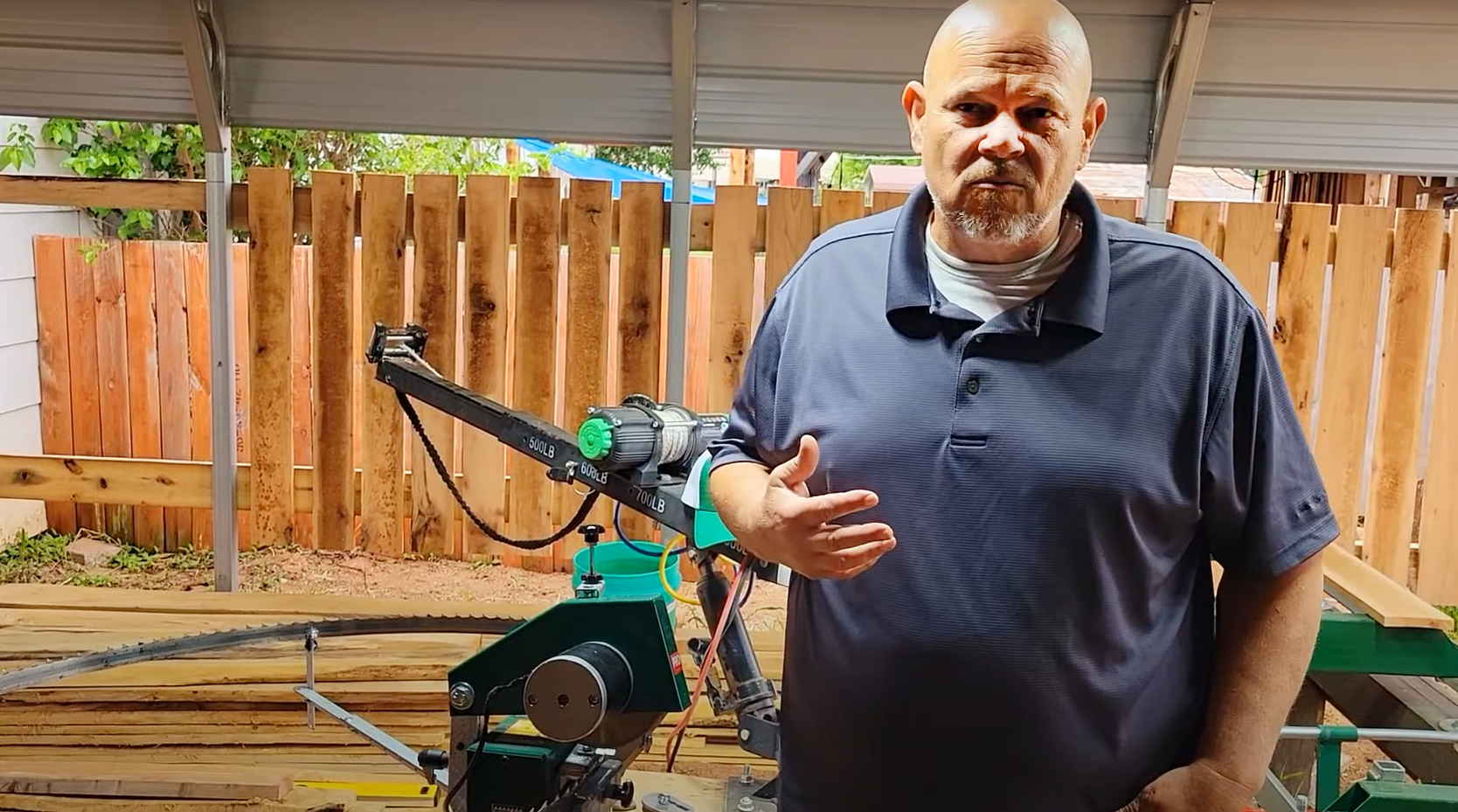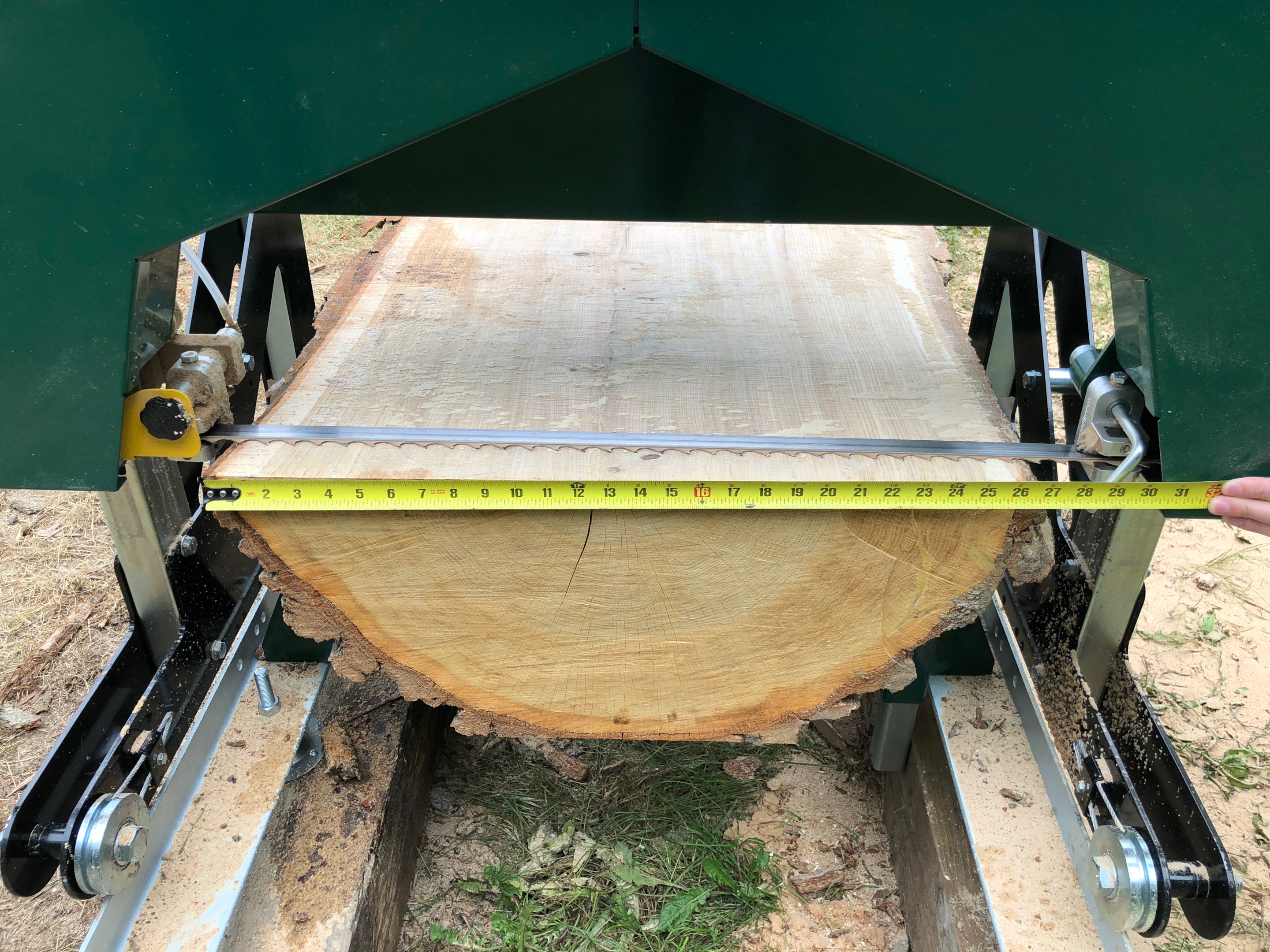Starting a sawmill business: From chainsaws to bandsaws
Jon shares how he built his entire operation with his Woodland Mills HM122 Portable Sawmill
Jon is passionate about chainsaws, it's why he started his own chainsaw business, Major Pix Power Saws.
But there's one thing he knows for sure about chainsaws: chainsaw milling is terrible for them. So Jon weighed his options and decided to get himself a portable mill, a Woodland Mills HM122 Portable Sawmill, and he's never looked back.
Now he finds himself making "slabs for epoxy" or for "small weekend projects," he says. He even sells to some of the larger construction companies in the area who use his lumber to build the interiors of homes.
Now his entire custom sawing operation is built on the back of his sawmill, and he says there's a larger market for individual sawyers looking to saw their own logs and convert them into lumber for their customers.
The original business plan
Like many sawyers, Jon got his start sawing as a hobby. He cranked out his chainsaw, got his own logs and did some Alaskan milling to turn exotic species like red cedar, red oak and others into beautiful boards.
That kickstarted Jon's passion for chainsaws and he ended up starting a new business entirely focused around building and servicing chainsaws. But he found while he loved chainsaws, they weren't the best tools for milling lumber.
"I found myself destroying chainsaws," says Jon, adding "bandsaw milling is really where you're going to end up going."
Looking at his business expenses, Jon says he needed a band mill that was affordable and would help him expand his business. When he looked online he found Woodland Mills and says he couldn't find a single negative thing said about their machines.
"The customer service is next to none," he proclaims.
With a sawmill in hand, Jon says he started milling. He was selling his lumber to locals for the creation of slab tables, epoxy resin boards, cabin interiors and many other projects.
He started uploading videos of himself milling to Instagram and Youtube and has garnered millions of views as he turns logs into lumber.
With a sawmill in hand he was able to fell trees and turn them into whatever his customers need and that's the heart of his sawmill business.

Advice for other sawyers
So what advice does Jon have for anyone else who wants to turn their sawmill into income? Here's what he says:
-
-
Find your market and "fill the gap" in your area
-
It's not enough to be passionate, you need to crunch the numbers and know the demand
-
Buy the equipment to meet those needs
-
"It's all about your region, it's all about where you're getting your lumber, your costs and your equipment," says John, as well as "what you're using that timber for."
Come up with a plan that includes:
-
-
Your expenses
-
A plan for processing the lumber (such as air drying or kiln drying)
-
A plan for buying logs or getting raw materials
-
Estimates on what the industry is like in your area
-
With this in hand, Jon says you've still got a lot to learn, but if you exercise patience and stick with it, you'll find the money in your local area and become a great resource for local land owners, developers and builders in your area.
Do that and you'll have a portable sawmill business where people will be willing to spend their money.

How it's going
While Jon is the sole proprietor of his business, in his workshop his wife and young daughter both have desks alongside his own. It's a family business, driven by a small sawmill but powered by the drive to help out others.
Jon says he can't count how many board feet he's milled on his HM122. One of the benefits of owning a sawmill over buying lumber from the hardware store is having access to exotic species.
On his Youtube and Instagram channels, Jon says he mills so much red cedar that he's become known as the red cedar king. He's able to make money from turning each single log into useable boards for whatever projects his customers need, using high quality materials.
While the upfront equipment cost was something to consider for his business, so far he says it's been worthwhile for him.
If you're at all considering a saw mill, Jon says you should look to the Woodland Mills Product Owners and Community Facebook group, where he says there's so many supportive sawyers helping each other out and sharing their projects.
Join the Woodland Mills Community Facebook group. Search advice and insights from over 65,000 knowledgeable, supportive members.
- Pre-purchase considerations
- Sawmill set-up support
- Project inspiration photos and videos
- Community troubleshooting support
